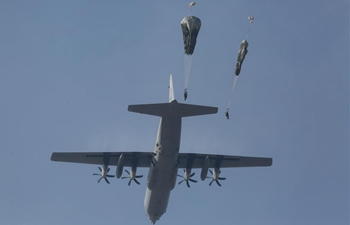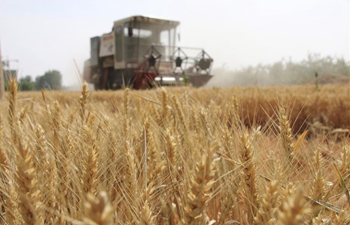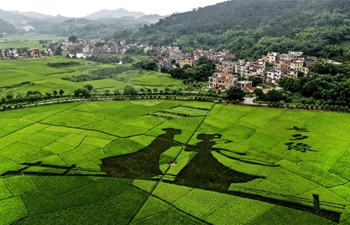MANILA, June 4 (Xinhua) -- Philippine manufacturing output declined in April 2019, the Philippine Statistics Authority (PSA) said on Tuesday, marking the sector's fourth consecutive month of declines in 2019.
In its Monthly Integrated Survey of Selected Industries (MISSI), the PSA reported that the Volume of Production Index (VoPI) and the Value of Production Index (VaPI) for March declined 14 percent and 10.8 percent, respectively.
The PSA said the decrease in VoPI in April was influenced by the downward movements noted in major 11 industry groups of which seven industry groups registered two-digit annual declines in VoPI. These were tobacco products, leather products, petroleum products, food manufacturing, furniture and fixtures, basic metals and transport equipment, the PSA said.
The PSA also said the downtrend in VaPI was mainly due to the two-digit annual decreases in the following major industry groups -- tobacco products, petroleum products, leather products, food manufacturing and basic metals.
A strong whole-of-government approach is necessary to boost manufacturing growth amid the sector's sluggish performance, the National Economic and Development Authority (NEDA) said.
"Notwithstanding, manufacturing output is expected to recover supported by improved domestic demand in the coming months. Easing inflationary pressures, accelerated government spending on infrastructure, and a more upbeat consumer outlook also provide additional support given expectations of additional income and availability of more jobs," Philippine Socioeconomic Planning Secretary Ernesto Pernia said.
Pernia said the needs of the food processing sector should be addressed as it accounts for the largest share among all manufacturing sub-sectors.
"This points to the critical importance of agriculture which, besides being the source of food, is also the feeder sector to the food manufacturing sub-sector," he added.
Pernia said there is a need to address the governance issues faced by the agri-business sector and its related industries.
"The government may need to revisit existing interventions to ensure that they are designed to be responsive to the needs and the actual behavior of farmers, fisher folks and processors," he said.













